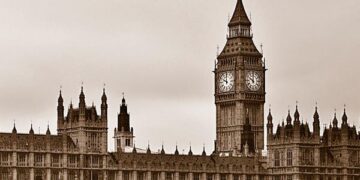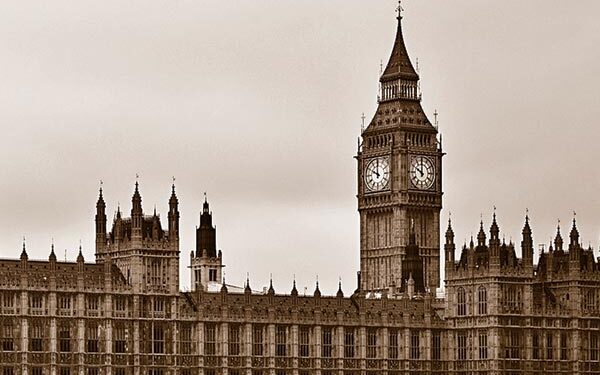The following are the excerpts of the proceedings in the House of Commons on the humanitarian pause in the Hamas, Israel conflict
All of us hope that the loss of life among innocent civilians can be minimised, but I would point out that the Israeli Government has an absolute right to go after the murderous terrorists of Hamas who perpetrated the dreadful events of October7

Andrew Mitchell
My understanding is not the same as the hon. Lady’s in respect of the British hostages. She will know that over 200 British nationals and their dependants have so far left Gaza, and we are working around the clock to get the rest of those out who want to leave. In terms of the hostages, my understanding is not the same as she has said.

Jeff Smith (Lab)
Does the Minister agree that we cannot accept civilians being ordered to flee into areas that are then subject to bombardment? Does he share the concerns of the UN and the World Health Organisation about the proposals for a safe zone with no infrastructure, which will cause more problems down the line?
Mr Mitchell
There are very serious problems with safe zones. We have learnt about them the hard way from the events that took place in Srebrenica, in—indeed—Rwanda, and in northern Iraq. It is an absolute preoccupation of humanitarians—including those in the United Nations, who are neuralgic about safe zones— to ensure that if we are to distribute very large amounts of aid we have the capacity to do so before too much longer, and we all hope that we are able to do it in the safest possible way.

Steve McCabe (Lab)
I welcome the pause, with hostages released and aid delivered, and I hope that it continues. I thank the right hon. Gentleman for the role that he has played to date, but if this drip, drip of hostage release is to continue, surely more must be done to ratchet up the pressure and ensure that the Red Cross and the Red Crescent gain access to the hostages about whom we have no information. Is that not a priority now?
Mr Mitchell
The hon. Gentleman is, of course, right: it is a priority. There is some suggestion that while I have been on my feet in the Chamber, Qatar has announced that the truce will be extended by two days. Obviously we all hope that that is true, and that as a result more hostages will be able to leave.
Andy Slaughter (Lab)
The Minister is known for his humanitarian instincts. Does he agree that it is unthinkable now to resume the indiscriminate destruction of Gaza and the lives of Palestinian civilians? Is he urging on the Israeli Government the need to find a means of removing the threat from Hamas that does not cost the lives of thousands of women, children and other noncombatants?
Mr Mitchell
The hon. Gentleman speaks with wisdom about the position of civilians. All of us hope that the loss of life among innocent civilians can be minimised, but I would point out to him that the Israeli Government have an absolute right to go after the murderous terrorists of Hamas who perpetrated the dreadful events of 7 October.
Patrick Grady (SNP)
I have heard from a number of constituents in Glasgow North who are concerned that weapons either manufactured in the UK or sold by UK companies are being used in this conflict. Can the Minister say how regularly the UK is assessing its obligations under the arms trade treaty to ensure that arms are not being transferred when there is a risk of their being used to commit or facilitate breaches of international humanitarian law?
Mr Mitchell
As the hon. Gentleman will know, the British rules for the export of arms, scrutinised by the Committees on Arms Export Controls, provide for the toughest regulations anywhere in the world. If he ever believes that those rules have been infracted in any way, he should of course inform the requisite authorities.
Imran Hussain (Lab)
Despite the four-day truce, there remains a humanitarian emergency in Gaza. We cannot return to the indiscriminate and unprecedented killing that we have seen take place on such a horrific scale over the last seven weeks; we need to see a lasting, permanent ceasefire. As I have been repeatedly urging the Minister, will the Government use the UK’s influence at this crucial moment to secure the ceasefire, so that we can see an end to the bloodshed and the war crimes, allow desperately needed aid to reach all parts of Gaza, and create space for the immediate return of all hostages and meaningful negotiations on a lasting peace?
Mr Mitchell
The hon. Gentleman will know that we are doing everything we can to ensure that the aid and support to which he has referred reaches those who need it. Of course, if we build on a humanitarian pause, the longer the pause goes on and the longer there are meaningful negotiations in Qatar, or through Qatar, the better. The hon. Gentleman will also be aware, however, that it is the policy of his own Front Bench as well as the British Government not to call for a ceasefire—which, for the reasons I have given, would be impractical in any event—but to pursue the pauses that are desperately needed for humanitarian relief to arrive.
















